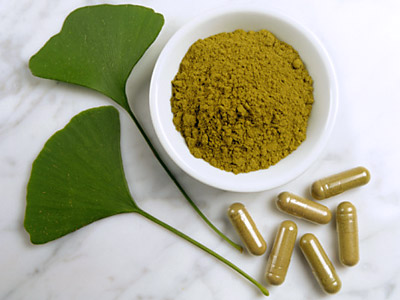Ginkgo Biloba, also known as the maiden-hair herb is extracted from the leaf of the Chinese gingko tree. The scientific name of the herb is Salisburia Adiantifolia; whereas the scientific terms for standardized extract are called Egb761 andGBE. Gingko Biloba isn’t popular as the other herbs which are known for their cerebral-enhancing properties, but it is much more effective than many of those.
As explained on the medical reference guide available on the website of University of Maryland Medical Centre, “Ginkgo has a long history of use in treating blood disorders and memory issues. It is best known today to potentially keep your memory sharp. Laboratory studies have shown that ginkgo improves blood circulation by opening blood vessels and making blood less sticky. It is also an antioxidant.
For those reasons, Ginkgo may improve vein and eye health. Although not all studies agree, Ginkgo may help treat Dementia (including Alzheimer disease) and intermittent claudication, or poor circulation in the legs. It may also protect memory in older adults.”
Gingko Biloba is used as a popular memory-enhancing supplement, for example, Natures’ Bounty Gingko Biloba. In the beginning, its use was more popular in the European regions. But, with the increase in researches being conducted on the efficacy of Gingko Biloba; its use in Asian and other regions is also on the rise.
Here are some of the reasons, why it must be tried as an alternative medicine for mnemonic benefits:
1. “Cerebral insufficiency is characterized by poor concentration, confusion, decreased physical performance, fatigue, headache, dizziness, depression, and anxiety. Research of ginkgo for cerebral insufficiency has demonstrated efficacy in reducing symptoms. However, additional research is warranted in this area.”
2. Research has demonstrated central and peripheral effects from Ginkgo, including: neuro-physiological, electrical (brain waves), and vascular alterations in both animals and humans. Due to Ginkgo’s complex mechanism of action and widespread effects, many have theorized that it could be used to treat a variety of conditions including: Dementia, memory impairment, or other cognitive deficits.
3. It is hypothesized that Ginkgo elicits an anti-inflammatory effect via effects on platelet activating factor (PAF) and altering the infiltration of white blood cells. By acting as an antagonist to platelet activating factor while simultaneously decreasing infiltration of eosinophil and neutrophil, inflammation is theorized to decrease. In addition, Ginkgo is thought to function as an antioxidant by scavenging free radicals, most notably nitric oxide.
4. Per a study conducted on rats, Ginkgo Biloba may boost brain functions by increasing stem cell growth. Supplementation with an extract from Ginkgo Biloba may help to battle memory loss and cognitive impairments associated with Dementia by encouraging the growth and development of neural stem cells, per new research in rats. The study was published on Neural Regeneration Research, a peer-reviewed scientific journal covering research on neuro-regeneration and stem cells.
Have you come across any researches or studies on the benefits of Gingko Biloba? Share your views and comments with us in the section below.
